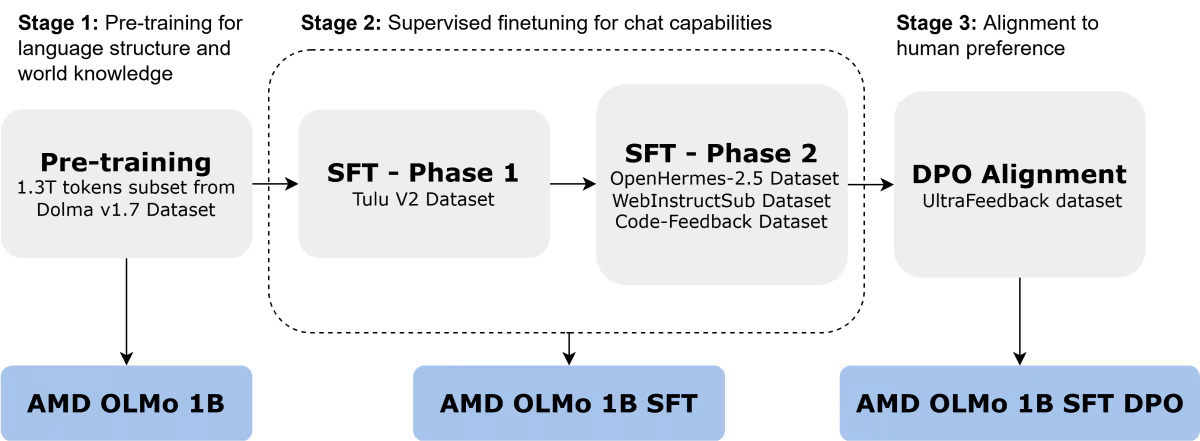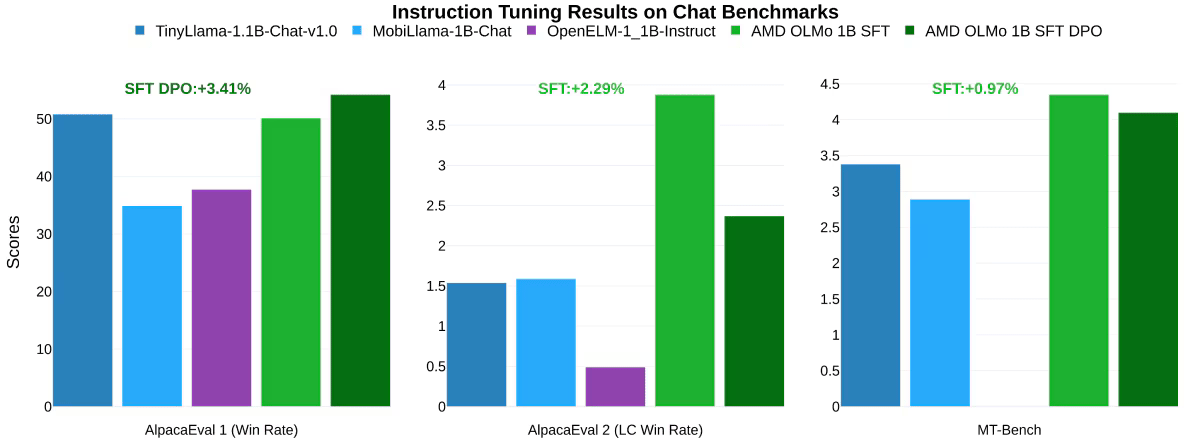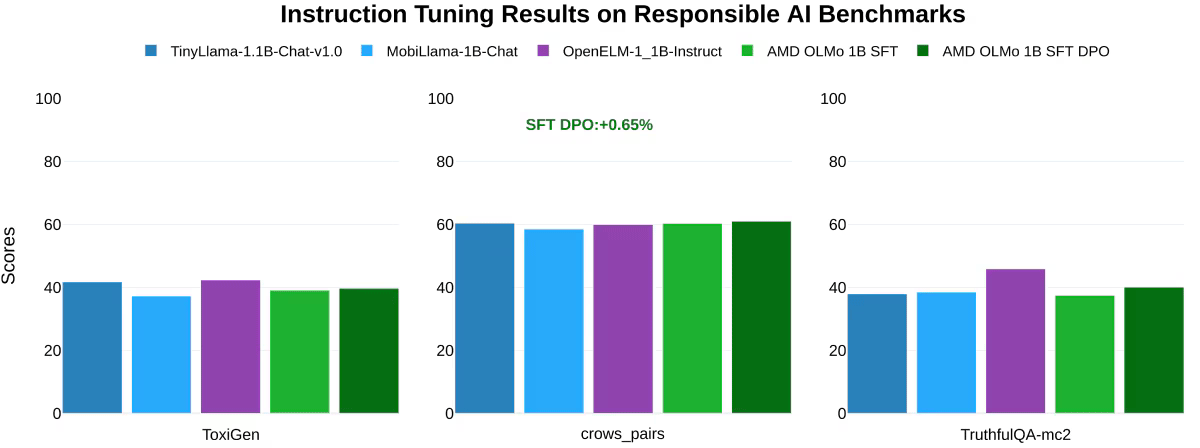AMD hasintroducedits first series of fully open-source 1-billion-parameter large language models (LLMs), calledAMD OLMothat is aimed at a variety of applications and pre-trained on the company’s Instinct MI250 GPUs. The LLMs are said to offer strong reasoning, instruction-following, and chat capabilities.
AMD’s open source LLMs are meant to improve the company’s position in the AI industry and enable its clients (and everyone else) to deploy these open-source models with AMD’s hardware. By open-sourcing the data, weights, training recipes, and code, AMD aims to empower developers to not only replicate the models but also build upon them for further innovation. Beyond use in datacenters, AMD has enabled local deployment of OLMo models on AMD Ryzen AI PCs equipped with neural processing units (NPUs), enabling developers to leverage AI models on personal devices.

Multi-stage pre-training
The AMD OLMo models were trained on a vast dataset of 1.3 trillion tokens on 16 nodes, each with four AMD Instinct MI250 GPUs (64 processors in total). AMD’s OLMo model lineup was trained in three steps.
Performance results
In AMD’s own testing, AMD OLMo models showed impressive performance against similarly sized open-source models, such as TinyLlama-1.1B, MobiLlama-1B, and OpenELM-1_1B in standardbenchmarksfor general reasoning capabilities and multi-task understanding.
The two-phase SFT model saw significant accuracy improvements, with MMLU scores increasing by 5.09%, and GSM8k by 15.32%, which shows impact of AMD’s training approach. The final AMD OLMo 1B SFT DPO model outperformed other open-source chat models by at least 2.60% on average across benchmarks.

When it comes to instruction-tuning results of AMD OLMo models on chat benchmarks, specifically comparing the AMD OLMo 1B SFT and AMD OLMo 1B SFT DPO models with other instruction-tuned models, AMD’s models outperformed the next best rival in AlpacaEval 2 Win Rate by +3.41% and AlpacaEval 2 LC Win Rate by +2.29%. Additionally, in the MT-Bench test, which measures multi-turn chat capabilities, the SFT DPO model achieved a +0.97% performance gain over its closest competitor.
Additionally, AMD tested responsible AI benchmarks, such as ToxiGen (which measures toxic language, where a lower score is better), crows_pairs (evaluating bias), and TruthfulQA-mc2 (assessing truthfulness in responses). It was found that the AMD OLMo models were on par with similar models in handling ethical and responsible AI tasks.

Get Tom’s Hardware’s best news and in-depth reviews, straight to your inbox.
Anton Shilov is a contributing writer at Tom’s Hardware. Over the past couple of decades, he has covered everything from CPUs and GPUs to supercomputers and from modern process technologies and latest fab tools to high-tech industry trends.



